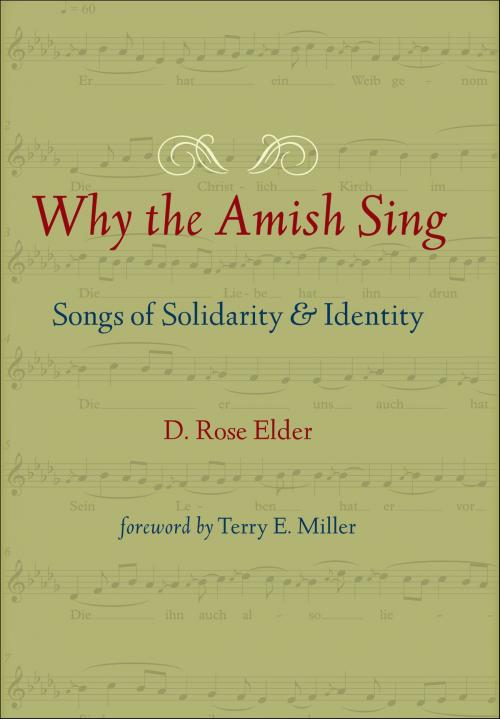Why the Amish Sing
Songs of Solidarity and Identity
Nonfiction, Religion & Spirituality, Christianity, Denominations, Amish, Social & Cultural Studies, Social Science, Sociology| Author: | D. Rose Elder | ISBN: | 9781421414669 |
| Publisher: | Johns Hopkins University Press | Publication: | September 15, 2014 |
| Imprint: | Language: | English |
| Author: | D. Rose Elder |
| ISBN: | 9781421414669 |
| Publisher: | Johns Hopkins University Press |
| Publication: | September 15, 2014 |
| Imprint: | |
| Language: | English |
Singing occurs in nearly every setting of Amish life. It is a sanctioned pleasure that frames all Amish rituals and one that enlivens and sanctifies both routine and special events, from household chores, road trips by buggy, and family prayer to baptisms, youth group gatherings, weddings, and "single girl" sings. But because Amish worship is performed in private homes instead of public churches, few outsiders get the chance to hear Amish people sing. Amish music also remains largely unexplored in the field of ethnomusicology. In Why the Amish Sing, D. Rose Elder introduces readers to the ways that Amish music both reinforces and advances spiritual life, delving deep into the Ausbund, the oldest hymnal in continuous use.
This illuminating ethnomusicological study demonstrates how Amish groups in Wayne and Holmes Counties, Ohio—the largest concentration of Amish in the world—sing to praise God and, at the same time, remind themselves of their 450-year history of devotion. Singing instructs Amish children in community ways and unites the group through common participation. As they sing in unison to the weighty words of their ancestors, the Amish confirm their love and support for the community. Their singing delineates their common journey—a journey that demands separation from the world and yielding to God's will.
By making school visits, attending worship services and youth sings, and visiting private homes, Elder has been given the rare opportunity to listen to Amish singing in its natural social and familial context. She combines one-on-one interviews with detailed observations of how song provides a window into Amish cultural beliefs, values, and norms.
Singing occurs in nearly every setting of Amish life. It is a sanctioned pleasure that frames all Amish rituals and one that enlivens and sanctifies both routine and special events, from household chores, road trips by buggy, and family prayer to baptisms, youth group gatherings, weddings, and "single girl" sings. But because Amish worship is performed in private homes instead of public churches, few outsiders get the chance to hear Amish people sing. Amish music also remains largely unexplored in the field of ethnomusicology. In Why the Amish Sing, D. Rose Elder introduces readers to the ways that Amish music both reinforces and advances spiritual life, delving deep into the Ausbund, the oldest hymnal in continuous use.
This illuminating ethnomusicological study demonstrates how Amish groups in Wayne and Holmes Counties, Ohio—the largest concentration of Amish in the world—sing to praise God and, at the same time, remind themselves of their 450-year history of devotion. Singing instructs Amish children in community ways and unites the group through common participation. As they sing in unison to the weighty words of their ancestors, the Amish confirm their love and support for the community. Their singing delineates their common journey—a journey that demands separation from the world and yielding to God's will.
By making school visits, attending worship services and youth sings, and visiting private homes, Elder has been given the rare opportunity to listen to Amish singing in its natural social and familial context. She combines one-on-one interviews with detailed observations of how song provides a window into Amish cultural beliefs, values, and norms.















